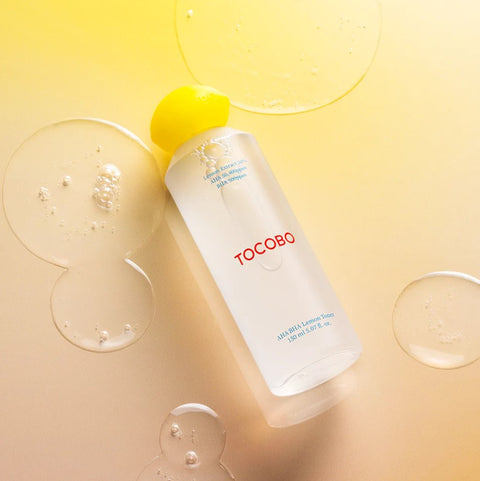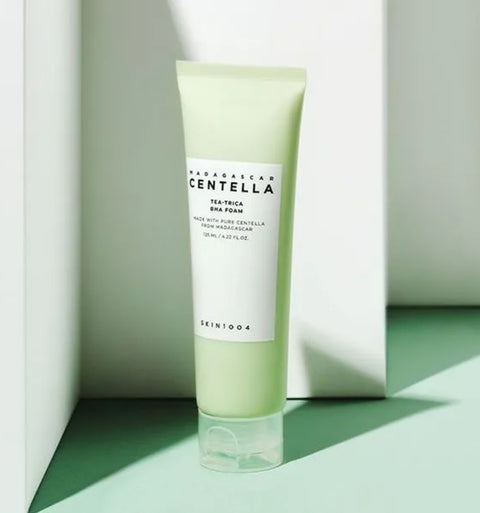Retinol is a topically applied over-the-counter vitamin A derivative and one of the most unbeatable active ingredients in the treatment and prevention of signs of aging.
The benefits of retinol in skin care
- effectively treats the signs of aging by reducing wrinkles
- boosts collagen production
- smoothes skin texture
- fades enlarged skin pores
- evens out skin tone by stimulating the formation of new blood vessels in the skin and fading pigment changes
- activates the skin's own regeneration process

How to start using retinol
You can start using products with low retinol concentrations by adding the product to your skin care routine once a day. However, if your skin is sensitive to new ingredients, we recommend following the same formula as with stronger retinol products.
You should start using products with medium and strong retinol concentrations gradually, even if you have used retinol in lower concentrations before.
- start by adding a retinol-containing product to your skin care routine two non-consecutive nights a week. Continue like this for two weeks.
- After that, you can increase the use on three non-consecutive nights a week. Continue for another two weeks.
- After that, if you want, you can increase the use of retinol to every other day, and if your skin can handle it, every day after the adaptation period.
You should always start using retinol with lower concentrations and move to higher concentrations over time. If you start directly with stronger concentrations, the skin may become irritated and react strongly to the start of retinol use; this may appear, for example, as redness and peeling of the skin.
Tingling of skin caused by retinol
Tingling caused by retinol on the skin immediately after application is completely normal, the feeling disappears quickly after the product is absorbed into the skin. However, if the tingling continues for a long time or you notice other skin symptoms, stop using the product and consult a dermatologist.
You can only find your skin's tolerance to the strength and frequency of use of retinol by experimenting. If your skin reacts strongly when you increase the use, you should try reducing the application interval. Even when used 2-3 times a week, you get a lot of benefits from retinol. However, to maintain the benefits of retinol, you need to continue using it regularly.
Who is retinol suitable for?
Everyone can benefit from the use of retinol, the more important question is what kind of strength should be added to the skin care routine. In practice, how much retinol your skin needs depends on your skin's condition and tolerance to its use. You can start using retinol already at the age of 25-30, if you suffer from, for example, liver spots or eye wrinkles. When started around 30, retinol also helps prevent signs of aging, which is always more effective than trying to repair damage afterwards. Retinol is also very useful for acne-prone skin, as it promotes skin renewal and fades acne scars.
Retinol for beginners and for dry and sensitive skin: 0,01%-0,03%.
When used in low concentrations together with other antioxidant-rich active ingredients during the day, retinol has been scientifically proven to fight effectively against air pollution. Just remember to always finish your skin care routine with at least a sun protection factor of 30.
Retinol is a scientifically proven effective ingredient even in small concentrations; even 0.01% or more has a positive effect on the signs of skin aging, the fading of skin pores and the general condition of the skin.
We recommend:
Retinol for uneven skin tone and early signs of aging: 0,03%-0,3%.
If you suffer from an uneven skin tone or surface, or a decrease in skin elasticity, we recommend trying about 0.2% strength retinol as part of your skin care routine. Start using two non-consecutive nights a week, and increase the frequency of use as the skin's tolerance increases.
Stronger retinol concentrations bring faster results, and according to research, retinol concentrations of 0.03% and higher can reverse visible skin damage and thinning of the skin caused by external factors. 0.1% strength retinols have been studied to improve many signs of aging in as little as eight weeks, with results even better over a year of use.
We recommend:
Retinol for wrinkles and very uneven skin tone: 0,3%-1%.
Those suffering from deep wrinkles and severe uneven skin tone can benefit from high concentrations of retinol in either cream or serum form. High-concentration retinol products can bring quick, visible benefits to skin types that haven't gotten the desired results from lower retinol concentrations.
We recommend:

With which active ingredients can retinol be combined?
Although retinol is an excellent ingredient for its anti-aging properties, improving the signs of aging requires more than just one solution. Retinol is recommended for use in combination with other complementary anti-aging and antioxidant ingredients such as niacinamide.
Retinol is well suited for use in combination with the following substances:
- peptides
- hyaluronic acid
- niacinamide
Peptides and retinol should be combined in the evening, because retinol promotes the absorption of peptides and thus firms the skin, and in addition, peptides moisturize the skin effectively, which helps if retinol has a drying effect on your skin.
A common misconception is that retinol cannot be combined with exfoliating AHA or glycolic acid or BHA or salicylic acid. In reality, retinol does not have exfoliating properties like AHA and BHA acids, and in addition, studies have shown that retinol's anti-aging properties are enhanced when it is combined with the above-mentioned acids in the right concentrations. The low pH of exfoliating acids also does not negate the effect of retinol.
Another persistent misconception about retinol is its association with vitamin C, based on a misunderstanding of pH balance and acidity. Vitamin C (especially ascorbic acid) requires a low pH to remain stable, or no pH at all if the composition does not contain water. The end result is a more acidic composition, but studies have shown that acidity does not negate the effect of retinol; the skin's natural pH is also acidic, and retinol is also naturally found in our skin. Instead, studies have found that combining vitamins (which are both retinol, a derivative of vitamin A, and vitamin C) creates better conditions for retinol by stabilizing its environment, thereby prolonging the effect of retinol. Antioxidant serum used together with retinol can therefore improve the effect of the retinol product instead of previous misconceptions. However, when used in high concentrations, we recommend alternating the use of retinol and vitamin C by adding one in the morning and the other in the evening.
Can you use retinol during the day?
In addition to the aforementioned myths about combining retinoids and active ingredients, one of the most persistent misconceptions is that retinol or retinal cannot be used during the day.
However, this is not true, skin care products containing retinoids can also be perfectly used as part of the morning routine, as long as you also use a sunscreen with at least an SPF 30 factor.
Studies have shown that Retinol and vitamins A and C in general remain stable in the sun, as long as sunscreen is also applied after them.
See our full range of retinol products


![[About Me] Rice Makgeolli Cleansing Foam](http://www.yeppo.fi/cdn/shop/files/about-me-rice-makgeolli-cleansing-foam-2.jpg?v=1704326845&width=480)

![[Anua] Peach 70% Niacin Serum Mask](http://www.yeppo.fi/cdn/shop/files/anua-peach-70-niacin-serum-mask-3.jpg?v=1703796396&width=480)








